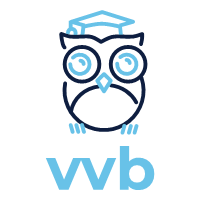Notes from Deep Work by Cal Newport
My notes from reading "Deep Work by Cal Newport"
Deep work is the ability to focus without distraction on a cognitively demanding task. It's a skill that allows you to quickly master complicated information and produce better results in less time.
Shallow work is Non-cognitively demanding, logistical-style tasks, often performed while distracted. There efforts tend not to create much new value in the world and are easy to replicate. examples: "checking email", "scheduling a conference call".
Crude criteria for identifying a shallow task - Ask yourself, "How long would it take (in months) to train a smart recent college graduate with no specialized training in my field to complete this task?"
This book emphasizes on sound-proofing yourself from the world in order to be able to do deep work. For the less extreme, it advocates taking out time for working on things that matter the most in your professional life. Spend less time on regular recurring non-productive things.
Below is the gist of things that I want to remember from the book,
4DX (4 Disciplines of Execution) Framework
Focus on the wildly important
- The more you try to do, the lesser you will accomplish.
- Execute small number of super important goals.
- Let the goals produce ambitious outcomes.
Act on lead measures
- Once you had identified a goal, find a way to access if your plan is working.
- In context of software development, Instead of accessing the number of features shipped (lag indicator), try and access the number of deep work hours you were able to spend (lead indicator) on the feature.
- Idea is to control the behaviour in the short-term which will have a positive impact on your long term goals.
Keep a compelling scoreboard
- Keep a physical artifact in the workplace that displays the current deep work hours count.
- It will help you access if you are heading in the right direction.
Create a cadence of accountability
- To maintain focus on the lead measures, a rhythm of regular checks on scoreboard should be done and the resuts must be analyzed.
- Corrective action should be taken if the results are not satisfactory. Regular accountability is must.
Theories
Unconscious Thought Theory (UTT)
Conscious brain is good for making decision where strict rules are involved. Unconscious brain is good for making decisions that involve large amount of information and multiple vague and perhaps even conflicting constraints. Providing your conscious brain time to rest enables your unconscious mind to take a shift sorting through your more complex challenges.
Attention Restoration Theory (ART)
Finding a way to free your mind from actively directing your attention and replacing it with enough interesting stimuli (like taking a walk, having a casual conversation with a friend, listening to music) to keep your mind occupied. This state allows your direction attention resources time to replenish which leads to better concentration.
Efficiency
The Law of the Vital Few - "In many settings, 80% of a given effect is due to just 20% of the possible causes".
We should aim to spend more time on the 20% of the causes for each of our life goals.
Brain needs training to stay focused. The more things it has to choose from the easier it is to get distracted. You should make lifestyle choices as per your goals.
List down your goals. List down the things you spend your time-on on a regular basis. Evaluate the degree of impact of each of these things on the goal. Categorize them as "Has significantly positive impact", "Has little impact", "Has significantly negative impact". Then train your brain to slowly spend lesser time on things that have lower or negative impact on your goal.
Hint: Evaluate the importance of social media in your life.
Control Addiction
Control the time spent on addictive things like the internet. Pre-plan how much time should you be spending and stick to it as much as possible. If your work requires more time to be spent on the internet, so be it. Plan correctly and stick to it.
Addiction thrives in vacuum, replace the vacuum with structured hobbies.
Plan Your Day
Thoughtfully plan every minute of your work day. A post-assessment of this plan will help you evaluate how much time was occupied doing shallow tasks. Your plans do not have to be accurate and can be revised multiple times a day. But having a plan is very important. When you stumble upon something of significant importance then it is even OK to abandon the rest of the day's plan and continue focusing on the important discovery.
Fixed-Schedule Productivity
Place artificial limits on the number of hours you allocate for work and try to do all your work in those hours. For example, you could decide that you will not work past 5:30 pm. This technique will push you to be more conscious of your time and will push you deeper into doing deeper work. It will also make you discard shallow work.
